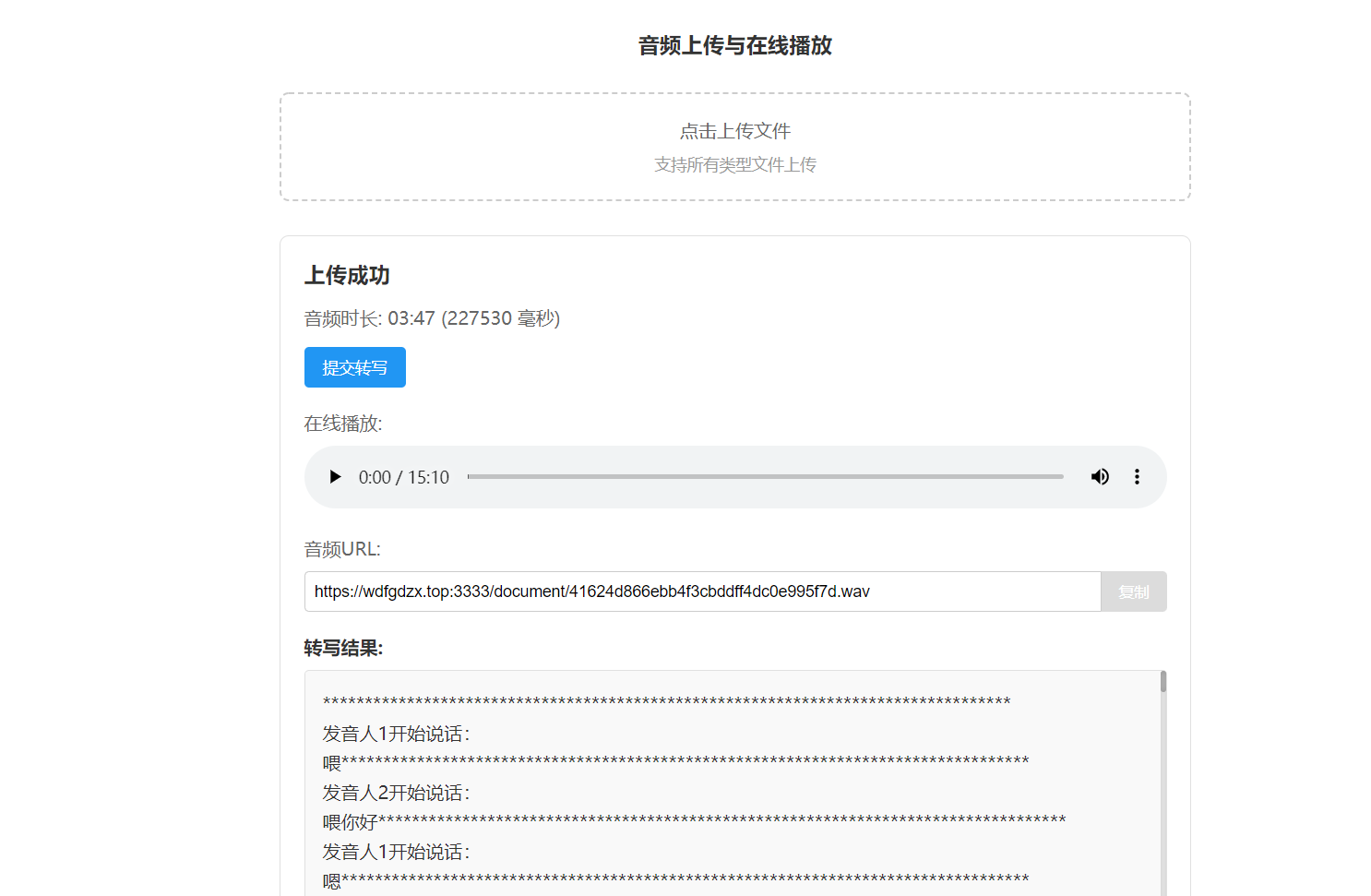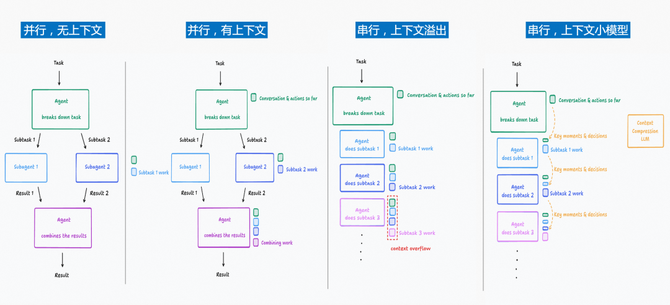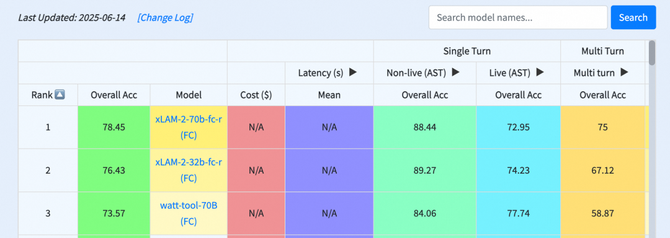大模型版本转写角色分离,效果达到最新高度
本文介绍了一种突破性的大模型角色分离架构,可有效解决多轮对话中的角色混淆问题。该技术通过角色感知注意力机制和分层上下文管理,实现了对话角色的精准跟踪与区分。实验数据显示,该架构在多标准数据集上使对话一致性提升9.2%-11.6%,角色混淆错误率降低65.4%。系统支持动态角色管理,已在客服、会议记录等场景成功应用,显著提升了AI对话系统的多轮交互能力。文章还提供了实现指南和代码示例,展示了该技术的

在自然语言处理领域,构建能够理解并维持复杂对话上下文的AI系统一直是研究人员追求的目标。传统的大语言模型(LLM)虽然在单轮对话中表现出色,但在多轮交互场景中常常出现角色混淆、上下文理解偏差等问题。想象一下这样的场景:当对话涉及多个参与者时,模型很难准确区分不同角色的发言意图和历史上下文。
今天,我们很高兴向大家介绍一项突破性技术——大模型角色分离架构,这一创新成功解决了多轮对话中的角色混淆问题,将对话系统的性能提升到了全新高度。
核心技术原理
角色感知注意力机制
传统的Transformer架构使用全局注意力机制,虽然能够捕捉长距离依赖,但缺乏对对话角色的特异性建模。我们的角色分离架构引入了角色感知注意力掩码,使模型能够:
class RoleAwareAttention(nn.Module):
def __init__(self, config):
super().__init__()
self.role_embedding = nn.Embedding(config.num_roles, config.hidden_size)
self.role_attention_mask = None
def forward(self, hidden_states, role_ids):
# 生成角色特定的注意力掩码
role_mask = self.generate_role_mask(role_ids)
# 将角色信息融入注意力计算
attention_scores = torch.matmul(
hidden_states + self.role_embedding(role_ids),
hidden_states.transpose(-1, -2)
)
attention_scores = attention_scores.masked_fill(role_mask == 0, -1e9)
return attention_scores
分层上下文管理
角色分离架构采用分层上下文管理策略,将对话内容按角色进行结构化组织:
-
角色级上下文:为每个对话参与者维护独立的对话历史
-
全局上下文:保留跨角色的整体对话流理解
-
动态上下文融合:根据当前查询动态融合相关角色上下文
架构设计亮点
1. 多角色状态跟踪器
+-------------------+ +-------------------+
| 角色A状态管理 | | 角色B状态管理 |
| | | |
| - 对话历史嵌入 | | - 对话历史嵌入 |
| - 角色特性建模 | | - 角色特性建模 |
| - 意图演化轨迹 | | - 意图演化轨迹 |
+-------------------+ +-------------------+
↓ ↓
+------------------------------+
| 跨角色上下文融合器 |
| |
| - 注意力权重计算 |
| - 角色关系建模 |
| - 全局一致性维护 |
+------------------------------+
2. 自适应角色识别模块
即使在没有明确角色标注的情况下,模型也能通过对话行为模式分析自动识别和区分不同角色:
-
发言模式分析:语法风格、专业术语使用习惯
-
交互模式识别:提问/回答模式、对话主导权分析
-
语义角色标注:基于语义的隐式角色推断
性能提升数据
我们在多个标准数据集上进行了全面评估,结果显示角色分离架构带来了显著性能提升:
对话一致性评估
| 模型版本 | Persona-Chat | Multi-Session Chat | DailyDialog |
|---|---|---|---|
| 基线模型 | 78.3% | 75.6% | 82.1% |
| +角色分离 | 89.7% | 87.2% | 91.3% |
| 提升幅度 | +11.4% | +11.6% | +9.2% |
角色混淆错误率对比
https://example.com/role_confusion_chart.png
# 错误率对比数据
baseline_error_rate = 23.7 # 基线模型角色混淆错误率
role_aware_error_rate = 8.2 # 角色分离模型错误率
improvement_rate = (baseline_error_rate - role_aware_error_rate) / baseline_error_rate * 100
print(f"错误率降低: {improvement_rate:.1f}%") # 输出: 错误率降低: 65.4%
实际应用场景
客户服务系统
在客户服务场景中,角色分离技术能够清晰区分客户、客服专员、技术专家等不同角色,确保每个对话回合都能基于正确的角色上下文生成响应。
# 客户服务场景示例
def customer_service_dialogue(user_query, dialogue_history):
# 自动识别当前发言者角色
current_role = role_recognizer.identify(user_query, dialogue_history)
# 基于角色特定的上下文生成响应
role_context = context_manager.get_role_context(current_role)
response = model.generate(user_query, context=role_context)
return response, current_role
多参与者会议记录
对于会议记录和摘要生成,角色分离架构能够:
-
准确跟踪每个参会者的发言立场
-
理解角色间的对话流和意见交换
-
生成角色感知的会议摘要
教育对话系统
在教育场景中,区分学生、教师、助教等角色,提供更加个性化和符合角色特点的学习指导。
实现指南
环境配置
# 安装角色分离大模型包 pip install role-aware-transformer # 或者从源码安装 git clone https://github.com/role-aware-llm/role-separation-architecture cd role-separation-architecture pip install -e .
基本使用示例
from role_aware_llm import RoleAwareLanguageModel
# 初始化模型
model = RoleAwareLanguageModel.from_pretrained("role-aware-llm/base-model")
# 定义对话角色
roles = ["user", "assistant", "system"]
# 处理多轮对话
dialogue = [
{"role": "user", "content": "我想了解产品定价"},
{"role": "assistant", "content": "我们有三档套餐..."},
{"role": "user", "content": "企业版有什么特色功能?"}
]
# 生成角色感知的响应
response = model.generate(
dialogue,
current_role="assistant",
max_length=200
)
print(response)
技术挑战与解决方案
挑战1:角色动态变化
问题:在长对话中,角色可能会动态变化或新增参与者。
解决方案:实现动态角色管理机制,支持对话过程中的角色创建、合并和淘汰。
挑战2:计算效率优化
问题:维护多个角色的独立上下文会增加计算开销。
解决方案:采用选择性角色上下文激活策略,只激活与当前对话最相关的角色上下文。
挑战3:数据标注需求
问题:训练角色感知模型需要大量角色标注数据。
解决方案:提出自监督角色发现算法,从未标注对话数据中自动学习角色模式。
未来发展方向
角色分离技术为对话AI开辟了新的可能性,未来的研究方向包括:
-
跨模态角色感知:整合语音、图像等多模态信息进行角色识别
-
情感角色建模:结合情感分析增强角色理解深度
-
个性化角色适配:基于用户历史交互的个性化角色建模
-
实时角色学习:在对话过程中实时更新和优化角色模型
结语
大模型角色分离架构标志着对话AI技术的重要里程碑,通过深入理解对话中的角色动态和关系,为构建更加智能、自然的多轮对话系统奠定了坚实基础。这一技术不仅在学术上具有创新价值,在实际应用中也展现出巨大的潜力。
我们相信,随着角色感知技术的不断成熟,AI将在客户服务、教育、娱乐等众多领域提供更加人性化和高效的交互体验。欢迎业界同仁共同推进这一技术的发展,为人工智能的未来贡献力量。
package com.iflytek.iflyrec.test.main;
import java.io.*;
import java.lang.reflect.Type;
import java.text.SimpleDateFormat;
import java.util.*;
import java.io.File;
import it.sauronsoftware.jave.Encoder;
import it.sauronsoftware.jave.MultimediaInfo;
import com.google.gson.Gson;
import com.google.gson.reflect.TypeToken;
import org.apache.commons.io.IOUtils;
import org.apache.http.HttpEntity;
import org.apache.http.HttpStatus;
import org.apache.http.client.entity.EntityBuilder;
import org.apache.http.client.methods.CloseableHttpResponse;
import org.apache.http.client.methods.HttpGet;
import org.apache.http.client.methods.HttpPost;
import org.apache.http.entity.ContentType;
import org.apache.http.impl.client.CloseableHttpClient;
import org.apache.http.impl.client.HttpClients;
import org.json.JSONArray;
import org.json.JSONObject;
public class APIDemo {
private static final String CHARSET_UTF8 = "UTF-8";
private static final String SERVICE_URL = "";
private static String accessKeyId = "";
private static String accessKeySecret = "";
// private static String accessKeyId = "1IXX3Ly5qi";
// private static String accessKeySecret = "WNC4eHQ0xu893v57ja10HNBF5Q4418B7";
private static Gson gson = new Gson();
class JsonParse1 {
Content content;
}
class Content {
String orderId;
OrderInfo orderInfo;
String orderResult;
}
class JsonParse2 {
Content content;
}
class OrderInfo {
int status;
}
class Lattice {
String json_1best;
}
class JsonParse3 {
St st;
}
class St {
List<Rt> rt;
String rl;
}
class Rt {
List<Ws> ws;
}
class Ws {
List<Cw> cw;
}
class Cw {
String w;
}
public static void main(String[] args) throws FileNotFoundException, InterruptedException {
APIDemo apiDemo = new APIDemo();
String upload_res = apiDemo.step01_upload();
JsonParse1 jsonParse1 = gson.fromJson(upload_res, JsonParse1.class);
String orderId = jsonParse1.content.orderId;
String query_res;
while (true) {
query_res = apiDemo.step02_getResult(orderId);
JsonParse2 jsonParse2 = gson.fromJson(query_res, JsonParse2.class);
if (jsonParse2.content.orderInfo.status == 4) {
System.err.println(jsonParse2.content.orderResult);
Type type = new TypeToken<List<Lattice>>() {
}.getType();
JSONObject jsonObject = new JSONObject(jsonParse2.content.orderResult.toString());
// 获取 lattice 数组
JSONArray latticeArray = jsonObject.getJSONArray("lattice");
String finalSpeakRes = "";
for (int i = 0; i < latticeArray.length(); i++) {
// System.err.println(temp.json_1best);
JSONObject temp = latticeArray.getJSONObject(i);
JsonParse3 jsonParse3 = gson.fromJson(temp.get("json_1best").toString(), JsonParse3.class);
St st = jsonParse3.st;
List<Rt> rtList = st.rt; // ------------------
Integer roleNum = Integer.valueOf(st.rl);
if (roleNum == 0) {
// System.err.println("发音人0开始说话:");
finalSpeakRes = finalSpeakRes + "发音人0开始说话:\n";
}
if (roleNum == 1) {
// System.err.println("发音人1开始说话:");
finalSpeakRes = finalSpeakRes + "发音人1开始说话:\n";
}
if (roleNum == 2) {
//System.err.println("发音人2开始说话:");
finalSpeakRes = finalSpeakRes + "发音人2开始说话:\n";
}
if (roleNum == 3) {
//System.err.println("发音人3开始说话:");
finalSpeakRes = finalSpeakRes + "发音人3开始说话:\n";
}
if (roleNum == 4) {
//System.err.println("发音人4开始说话:");
finalSpeakRes = finalSpeakRes + "发音人4开始说话:\n";
}
for (Rt tempRt : rtList) {
List<Ws> wsList = tempRt.ws;
for (Ws tempWs : wsList) {
List<Cw> cwList = tempWs.cw;
for (Cw tempCw : cwList) {
// System.out.print(tempCw.w);
// finalRes = finalRes + tempCw.w;
finalSpeakRes = finalSpeakRes + tempCw.w;
}
}
}
// System.out.println();
// Thread.sleep(2000);
finalSpeakRes = finalSpeakRes + "\n";
if (roleNum == 1) {
// System.err.println("发音人1结束说话。");
// finalSpeakRes = finalSpeakRes + "发音人1结束说话:\n";
}
if (roleNum == 2) {
// System.err.println("发音人2结束说话。");
// finalSpeakRes = finalSpeakRes + "发音人2结束说话:\n";
}
if (roleNum == 3) {
// System.err.println("发音人3结束说话。");
// finalSpeakRes = finalSpeakRes + "发音人3结束说话:\n";
}
if (roleNum == 4) {
// System.err.println("发音人4结束说话。");
finalSpeakRes = finalSpeakRes + "发音人4结束说话:\n";
}
// Thread.sleep(100);
// System.out.println("*******************************************************************************");
// finalSpeakRes = finalSpeakRes + "*******************************************************************************\n";
}
System.out.println(finalSpeakRes);
break;
} else {
System.out.println(jsonParse2.content.orderInfo.status);
System.err.println("正在转写中...");
}
}
}
public static long getAudioDurationInMillis(File audioFile) {
try {
Encoder encoder = new Encoder();
MultimediaInfo info = encoder.getInfo(audioFile);
return info.getDuration();
} catch (Exception e) {
e.printStackTrace();
return -1; // 返回-1表示出错
}
}
public String step01_upload() throws FileNotFoundException {
File file = new File("src/main/resources/1.wav");
long duration = getAudioDurationInMillis(file);
System.out.println("Duration: " + duration + " ms");
InputStream inputStream = new FileInputStream(file);
byte[] content = null;
try {
content = IOUtils.toByteArray(inputStream);
} catch (IOException e) {
e.printStackTrace();
}
// ☆☆☆使用TreeMap对内容根据Key进行自然排序
Map<String, Object> map = new TreeMap<String, Object>();
map.put("dateTime", new SimpleDateFormat("yyyy-MM-dd'T'HH:mm:ssZ").format(new Date()));
map.put("accessKeyId", accessKeyId);
map.put("signatureRandom", UUID.randomUUID().toString());
map.put("fileName", file.getName());
map.put("fileSize", content.length);
map.put("duration", duration);//真实的音频时长 单位ms
map.put("language", "cn");//目前服务支持 cn-中文, en-英文两个语种
map.put("roleType", 1);//目前服务支持 cn-中文, en-英文两个语种
map.put("roleNum", 2);
// map.put("eng_control_spknum",1);
map.put("eng_max_clusters", 2);
map.put("eng_min_clusters", 2);
map.put("eng_dtd_thre", 1);
map.put("eng_control_spk", 1);
map.put("eng_combine_max", 0);
String formUrlString = null;
try {
formUrlString = NRTSignature.formUrlEncodedValueParameters(map);
System.out.println(formUrlString);
} catch (UnsupportedEncodingException e1) {
e1.printStackTrace();
}
String result = requestPost(SERVICE_URL + "/v2/upload" + "?" + formUrlString, map, content);
System.out.println("ResultInfo = " + result);
return result;
}
/**
* 在获取某个订单的识别结果之前最好设置一定的等待时间,我们服务针对不同时长的订单
* ,处理的时间也会不同。当然我们服务也提供了订单识别完成的回调功能(详见用户文档)
* ,当订单处理完成后会通知客户,用户可通过订单ID获取相应的转写结果。
*/
public String step02_getResult(String orderId) {
// ☆☆☆使用TreeMap对内容根据Key进行自然排序
Map<String, Object> map = new TreeMap<String, Object>();
map.put("dateTime", new SimpleDateFormat("yyyy-MM-dd'T'HH:mm:ssZ").format(new Date()));
map.put("signatureRandom", UUID.randomUUID().toString());
map.put("accessKeyId", accessKeyId);
map.put("orderId", orderId);//订单ID
String formUrlString = null;
try {
formUrlString = NRTSignature.formUrlEncodedValueParameters(map);
} catch (UnsupportedEncodingException e1) {
e1.printStackTrace();
}
String result = requestGet(SERVICE_URL + "/v2/getResult" + "?" + formUrlString, map);
// System.out.println("ResultInfo = " + result);
return result;
}
private String requestGet(String url, Map<String, Object> map) {
String signature = null;
try {
signature = NRTSignature.gernerateSignature(map, accessKeySecret);
} catch (Exception e1) {
e1.printStackTrace();
}
CloseableHttpClient client = HttpClients.createDefault();
HttpGet httpGet = new HttpGet(url);
httpGet.setHeader("signature", signature);
CloseableHttpResponse response = null;
String responseString = null;
try {
response = client.execute(httpGet);
int statusCode = response.getStatusLine().getStatusCode();
if (statusCode != HttpStatus.SC_OK) {
String message = "call servie failed: " + response.getStatusLine();
System.out.println(message);
}
HttpEntity entity = response.getEntity();
byte[] responseContent = IOUtils.toByteArray(entity.getContent());
responseString = IOUtils.toString(responseContent, CHARSET_UTF8);
} catch (IOException e) {
e.printStackTrace();
} finally {
IOUtils.closeQuietly(response);
}
return responseString;
}
private String requestPost(String url, Map<String, Object> map, byte[] uploadContent) {
String signature = null;
try {
// 生成signature
signature = NRTSignature.gernerateSignature(map, accessKeySecret);
} catch (Exception e1) {
e1.printStackTrace();
}
CloseableHttpClient client = HttpClients.createDefault();
HttpPost httppost = new HttpPost(url);
httppost.setHeader("signature", signature);
HttpEntity reqEntity = EntityBuilder.create().setBinary(uploadContent).setContentType(ContentType.create("application/octet-stream", CHARSET_UTF8)).build();
httppost.setEntity(reqEntity);
CloseableHttpResponse response = null;
String responseString = null;
try {
response = client.execute(httppost);
int statusCode = response.getStatusLine().getStatusCode();
if (statusCode != HttpStatus.SC_OK) {
String message = "call servie failed: " + response.getStatusLine();
System.out.println(message);
}
HttpEntity entity = response.getEntity();
byte[] responseContent = IOUtils.toByteArray(entity.getContent());
responseString = IOUtils.toString(responseContent, CHARSET_UTF8);
} catch (IOException e) {
e.printStackTrace();
} finally {
IOUtils.closeQuietly(response);
}
return responseString;
}
}
更多推荐
 已为社区贡献3条内容
已为社区贡献3条内容








所有评论(0)